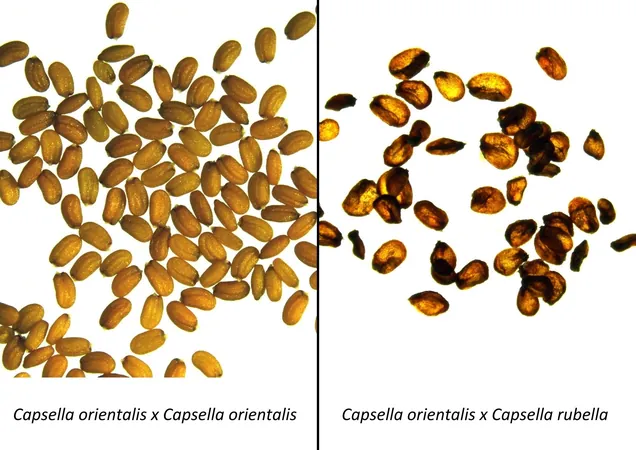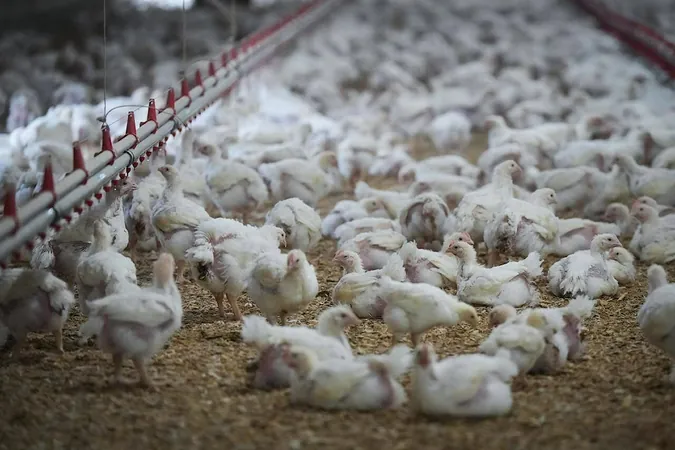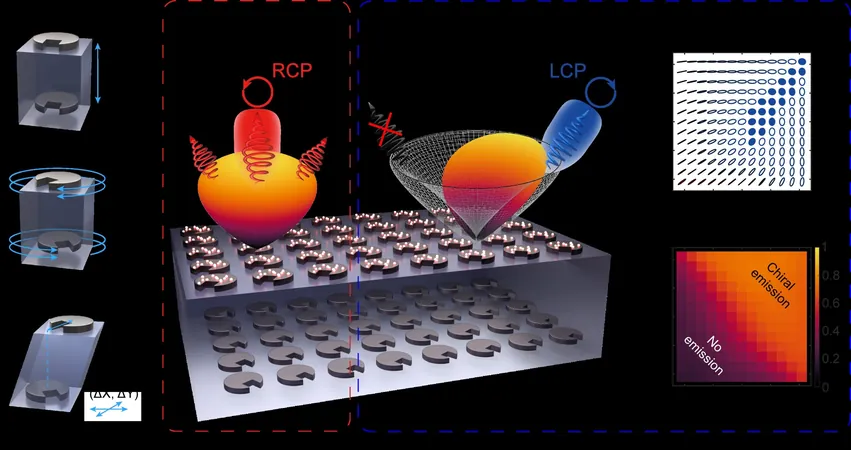
Revolutionary Discovery: Materal Small RNAs Could Unlock the Secret to Successful Hybrid Seeds in Plants!
2024-11-11
Author: Olivia
Introduction
In the quest for high-quality crops that can withstand environmental challenges, plant breeders often turn to hybridization, crossing different species to inherit desirable traits. Yet, they face a daunting issue: hybrid seed failure. This barrier commonly hinders the production of viable seeds even among closely related species.
Groundbreaking Study
A groundbreaking study published in *Nature Plants* by researchers from the Max Planck Institute of Molecular Plant Physiology sheds light on this persistent challenge, revealing the pivotal role of small RNA molecules in the fate of hybrid seeds. This research holds the potential to significantly enhance hybridization success rates in agriculture.
The Role of Endosperm
The study dives into the role of the endosperm – a tissue essential for seed nourishment akin to the placenta in mammals – and underscores that many hybrid seeds fail due to insufficient development of this crucial structure. The endosperm is responsible for providing the nutrients that the developing embryo requires to thrive; without proper endosperm formation, seeds cannot survive.
Research Insights
Led by Prof. Dr. Claudia Köhler's team, the research focuses on plants in the Brassicaceae family—including economically important crops such as mustard, broccoli, and rapeseed. Their findings highlight a significant correlation between the failure of hybrid seeds and a deficiency in maternal small RNAs, which are transmitted from the mother plant to the endosperm.
Impact of Small RNAs
These small RNAs play a fundamental role in regulating gene expression in the endosperm. Abnormal gene expression can halt seed development, ultimately leading to seed death. Dr. Katarzyna Dziasek, the lead author of the study, emphasizes, "Our findings suggest that the dosage of maternally provided small RNAs can determine whether a hybrid seed will grow or not. By manipulating the levels of these RNA molecules, we could dramatically improve the survival rates of hybrid seeds and break the long-standing barriers to successful interspecies breeding."
Broader Implications
What’s even more fascinating is that this phenomenon extends beyond the realm of plants. In fruit flies, a similar occurrence referred to as hybrid dysgenesis reveals that maternal small RNAs protect against genetic anomalies that arise from excessive differences in paternal genetic material. Thus, whether in plants or animals, these tiny RNA molecules significantly influence how compatible different species are when hybridizing.
Future Research
While this study has provided crucial insights into the role of small RNAs in hybrid seed success, many questions remain about the generation and transfer mechanisms of these molecules from the maternal plant to the endosperm. Research into these processes is actively ongoing in Professor Köhler's laboratory.
Conclusion
As this pivotal research continues to unfold, the agricultural community may be on the cusp of revolutionary advancements that could lead to more robust, resilient crops capable of thriving in a rapidly changing world. Stay tuned for further developments in this exciting field that could redefine plant breeding and enhance food security globally!









 Brasil (PT)
Brasil (PT)
 Canada (EN)
Canada (EN)
 Chile (ES)
Chile (ES)
 España (ES)
España (ES)
 France (FR)
France (FR)
 Hong Kong (EN)
Hong Kong (EN)
 Italia (IT)
Italia (IT)
 日本 (JA)
日本 (JA)
 Magyarország (HU)
Magyarország (HU)
 Norge (NO)
Norge (NO)
 Polska (PL)
Polska (PL)
 Schweiz (DE)
Schweiz (DE)
 Singapore (EN)
Singapore (EN)
 Sverige (SV)
Sverige (SV)
 Suomi (FI)
Suomi (FI)
 Türkiye (TR)
Türkiye (TR)